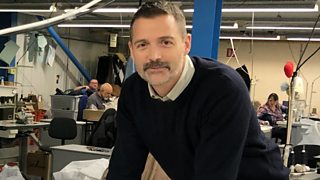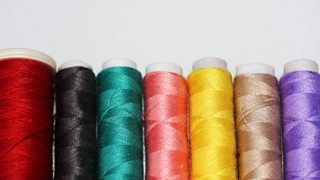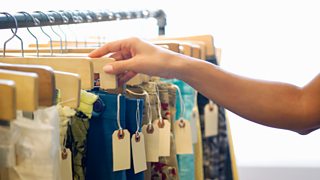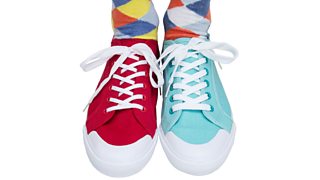Can fashion ever be ethical and cheap?
The allure of a cheap outfit can be hard to resist - many of us are guilty of snapping up a bargain and ending up with a wardrobe full of clothes we hardly wear. But slowly, it seems we’re discovering that behind the cheap price tag, there comes a huge cost to the planet.
So how can we buy sustainably without it hurting our wallets? Radio 4’s In Business has been investigating whether fast fashion can ever be both cheap and sustainable.

-
![]()
In Business: Making fashion sustainable
The British menswear designer, Patrick Grant asks what needs to be done to make the fashion industry more sustainable.
Since the impact of the fast fashion cycle has been hitting headlines, we’re finding out just how polluting the industry is. Fashion production accounts for up to 10% of humanity’s carbon emissions, while 85% of textiles reportedly end up in landfill.
There’s a human cost too - garment workers are regularly exploited, with reports that a number of workers in India are being by major Western brands.
It appears as though the current fast fashion cycle isn’t sustainable. But the pull of cheap price tags can be hard to resist, so how can we buy sustainably without it hurting our wallets?
Patrick Grant, British Menswear designer and judge on the Great British Sewing Bee:
Patrick Grant, British Menswear designer and judge on The Great British Sewing Bee, has been investigating whether fast fashion can ever be both cheap and sustainable for Radio 4’s In Business.
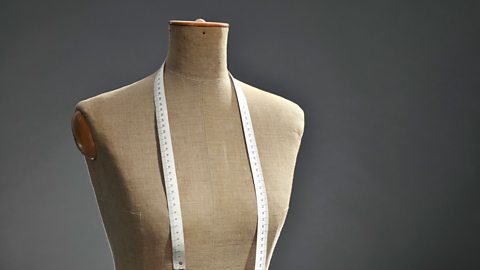
How effective are the campaigns for sustainable fashion?
The fashion industry has a bad reputation when it comes to sustainability.
His clothing line, , is one of several UK sustainable fashion brands that have sprung up in recent years.
“The fashion system is literally killing the planet,” Patrick says. “The fast fashion industry makes you think that you need a new thing every Monday night when they release that new drop - and it’s just wrong.”
According to Patrick, the clothes his company makes are designed to be worn many times and not go out of style.
Vanessa Podmore, independent sustainability consultant:
Vanessa Podmore, an independent consultant who advises companies on sustainability, says most people have no idea where their clothes actually come from.
When a dress only costs 拢5, it suggests to me that it hasn鈥檛 been made under compliant conditions.
“People have no idea about the length and complexity of the supply chains, the conditions that the product was made in, where on earth it came from, what on earth it's made on.
“When it comes to the people involved in making our clothes, there are some very nasty things going on in our long and complicated supply chains.” Vanessa says more consumers need to start questioning the origins of the cheap clothing they buy. “When a dress only costs £5, it suggests to me that it hasn’t been made under compliant conditions."
She says companies can find it ‘tempting’ to chase cheap labour in countries where there might not be labour laws. “Big buyers jump from one factory to another, one country to another, chasing the dollar.
“The big new development area is Africa, which is causing concerns in many circles because in many countries, there isn’t a law dictating legal minimum wage rates. So it’s tempting for buyers to go in and pay not enough.”
But how easy is it to change the way people shop?
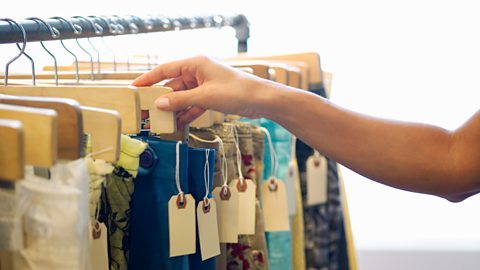
How do fashion brands deliver the latest trends so quickly?
From the design to the shop, what is 'fast fashion' and how do top brands turn it round?
Andrew Whale, head of sourcing and development at Debenhams:
For Andrew Whale, head of sourcing and development at , shoppers need to start making different decisions about the clothes they buy.
Consumers should demand to know where products are made and what the standards are, which we鈥檝e seen in the UK with food, and the next step will be clothing.
“Customers are voting with their wallets,” he says. “You could argue that the only way you can actually stop this is for customers to say no, I’m not going to buy it."
“Consumers should demand to know where products are made and what the standards are, which we’ve seen in the UK with food, and the next step will be clothing.”
Carmel McQuaid, head of sustainable business at Marks & Spencer:
Carmel McQuaid, head of sustainable business at , says the answer could lie in finding creative ways to make buying less clothes more appealing.
“People emotionally want to have new products, so we’re working with stylists to help customers get more life out of their clothes."
“We’re doing more with stylists, like encouraging people to wear an item of clothing in a different way - one dress, five ways to wear it, without trying to be preachy.”
And being ‘preachy’ to customers is exactly what the industry needs to avoid doing, according to fashion buyer Jenny Holloway.
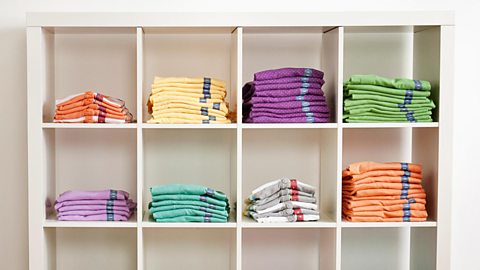
Why do we buy clothes that we never wear?
There is more than three billion pounds' worth of unworn clothes in the UK's wardrobes.
Jenny Holloway, fashion buyer:
Jenny runs a factory and social enterprise called , which makes clothes for big names including and .
Cheap is subjective - what鈥檚 cheap for one person might not be for another.
According to Jenny, her factory makes clothes to meet the demand of a store, rather than selling a huge amount of clothing at cheap and discount prices.
She says her workers are paid an average of £12 an hour.
“Cheap is subjective - what’s cheap for one person might not be for another,” she says. “If you’re on Jobseeker’s allowance, then £10 can be a lot to spend on one piece of clothing, even if it seems cheap to someone else.”
But Patrick Grant believes that many people who buy lots of cheap clothes could choose to spend a bit more on a longer-lasting item.
“I think most humans are fundamentally decent, and if everyone was confronted with the appalling work practises that the people who make their clothes have to be subjected to, I think they would have a negative reaction,” he says.
“But until the consumer pressing the button to buy something knows what the physical, social and emotional cost of it is, it’s not going to change,” Jenny says.
“It’s about education - and it is changing, but slowly.”
For Patrick, the human and environmental cost of fast fashion is too high for things to carry on as they are. He says to buy sustainably, we need to buy fewer better-made - and therefore more expensive - garments.
“We cannot consume our way out of an environmental crisis,” he says. “We need to vote with our wallets - firstly by leaving them in our pockets. And when we do need something, support businesses brave enough to tell us to buy less.”
Listen to the full edition of In Business: Making Fashion Sustainable on 成人快手 Sounds

Could you buy all your clothes second-hand?
People are buying more of their clothes second-hand because of worries about waste.
More from Radio 4
-
![]()
In Business: Making fashion sustainable
The British menswear designer, Patrick Grant asks what needs to be done to make the fashion industry more sustainable.
-
![]()
10 fashion ideas that will help save the planet
For the fashion-loving consumer who wants to go green, here are ten trends and tips.
-
![]()
Swapping, second-hand and sustainability: Mary Portas on the future of fashion
Mary Portas talks to characters across the clothing world about the future of fashion.
-
![]()
9 ways to stay stylish without spending a fortune
These 9 thrifty tips will help you dress like a style icon without it costing a thing.
